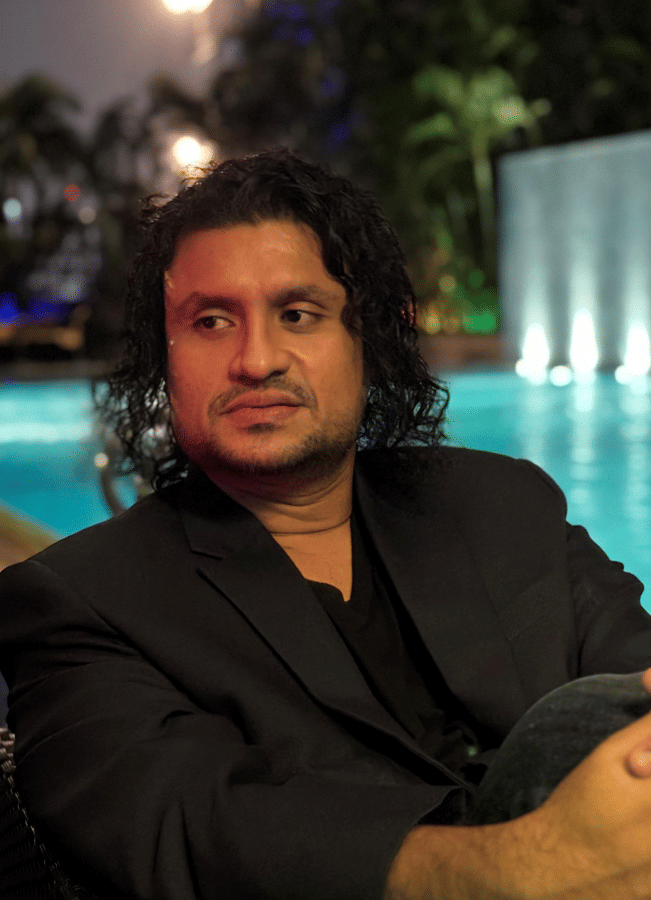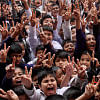In the mid-2000s, Bangladesh's radio landscape was barren. FM radio was virtually non-existent, and the idea of a youth-centric station seemed far-fetched. That was until Daniel Rahman stepped in, unknowingly setting the foundation for one of the country's most iconic youth brands, Radio Foorti. We got a chance to sit down with him to learn more about how the brand came to be, its role in shaping Bangladeshi culture, the decline of radio and his passion for the music industry.
An unplanned journey into radio
For Daniel Rahman, radio was never the plan. "My journey into radio happened in a rather unexpected way," he recalls. In 2006, MGH Group secured one of the first FM radio licenses in Bangladesh, and sought expert advice from India's Radio Mirchi. They were told to find someone who was deeply immersed in Dhaka's cultural scene; someone socially connected and musically inclined. "Surprisingly, I met all these criteria," Daniel says. "At the time, I was still in university, with no concrete plans to enter the radio industry. But since they were actively looking for such a person, I found myself becoming a part of it. It all happened organically, without prior planning."

Building an authentic Bangladeshi brand
Once at the helm of Radio Foorti, Daniel had a clear vision; to create a brand that truly represented Bangladeshi youth. "Back then, brands targeting young people often felt too Westernised or carried Indian influences," he explains. "A prime example is the portrayal of youth and their culture in television commercials at the time, which didn't truly resonate with the actual young population. I wanted to change that."
The first step was to come up with a name that was unmistakably Bangladeshi and also captured the essence of being young: 'Foorti,' the Bengali word for fun, was the perfect choice. Music, of course, was the backbone of Radio Foorti, but he also wanted the station to reflect everyday youth experiences. "Traditional elements like Pahela Boishakh, pitha, mela, Rabindra Sangeet, and classical dance, while valuable, weren't what the youth deeply connected with. Instead, they resonated more with eating fuchka, jhalmuri, hanging out at tea stalls or tong as they are more popularly known, adda mara, and rickshaw rides," he says. "As someone who was young myself at the time, these were the experiences I related to as well."
By crafting a brand that spoke directly to the youth, Radio Foorti quickly became a cultural phenomenon. "We redefined what it meant to be young and Bangladeshi, moving beyond conventional cultural portrayals and embracing a more authentic identity. That's why Radio Foorti became a cultural icon from the moment it launched."
Challenges of creating a youth-centric brand
Despite his success, Daniel acknowledges that creating youth-focused brands in Bangladesh remains a challenge. "By 2009-10, Radio Foorti had established itself as one of the standout youth brands, and even in 2025, only a handful of brands have managed to achieve that level of connection," he notes.
One of the key issues, he explains, is how brands are built. "Many ad agencies and brand developers have a rigid, outdated perception of what 'youth' means. But to successfully capture the youth market, you need to deeply understand their emotions, aspirations, struggles, and even their slang. Brands often rely on clichés rather than genuinely engaging with young people." He stresses that youth culture is constantly evolving, especially in the age of TikTok, making it even harder to keep up. "Staying relevant requires constant adaptation, something many brands fail to do."

The decline of radio and the future of the industry
While Radio Foorti flourished in its prime, the broader radio industry has struggled in recent years. "Radio's decline isn't unique to Bangladesh, it's a global phenomenon," Daniel explains. "The internet has disrupted not just radio, but also newspapers and television. However, radio's downfall happened more rapidly because the industry stopped innovating at a critical juncture."
He believes that many radio stations became complacent, assuming their audiences would remain loyal. "Once money starts flowing in, the urgency to innovate diminishes. But with the rise of the internet and social media, radio stations found themselves competing on a global scale. When content wasn't compelling enough, listeners simply moved on to better alternatives."
So, does radio have a future in Bangladesh? According to Daniel, it does, but only if drastic changes are made. "The only way forward is to embrace digital transformation. Radio can no longer function as just 'radio', it needs to become a more integrated media platform with strong video elements and an interactive online presence." However, he admits, "I don't see many efforts being made to capitalise on this potential. Unless drastic changes happen, the industry will continue to fade."
A burning passion for the music industry
Beyond radio, Daniel has always been passionate about the Bangladeshi music industry, which is actually one of the contributing factors of Radio Foorti's immense success. "During my time in radio, which was up until the pandemic, my main focus was always on musicians. I believed that the more musicians we nurtured, the more stars we created, and in turn, the more radio thrived."
He made it a point to support artists, regardless of their status. "My policy was simple; whether you were a legend or a bathroom singer, my door was always open. Send me your demo! Many now-successful musicians and bands got their first break because I loved their music and played it on my radio."
Today, he sees a lack of people willing to take similar initiatives. "The industry suffers because people are too focused on their own interests rather than the bigger picture. This self-centred mindset is one of the saddest aspects of Bangladeshi culture and it really stops things from growing"
However, he remains hopeful. "If more people prioritised the music scene itself, supporting up-and-coming artists instead of just pushing their own agenda, the industry could reach incredible heights. Who knows, maybe I'll step back into the industry someday to help make that happen."
From shaping the voice of Bangladeshi youth to championing local musicians, Daniel Rahman's influence on the country's cultural landscape is undeniable. His journey, though unplanned, has left an enduring mark, proving that true innovation comes from understanding and embracing the essence of a generation.








Comments